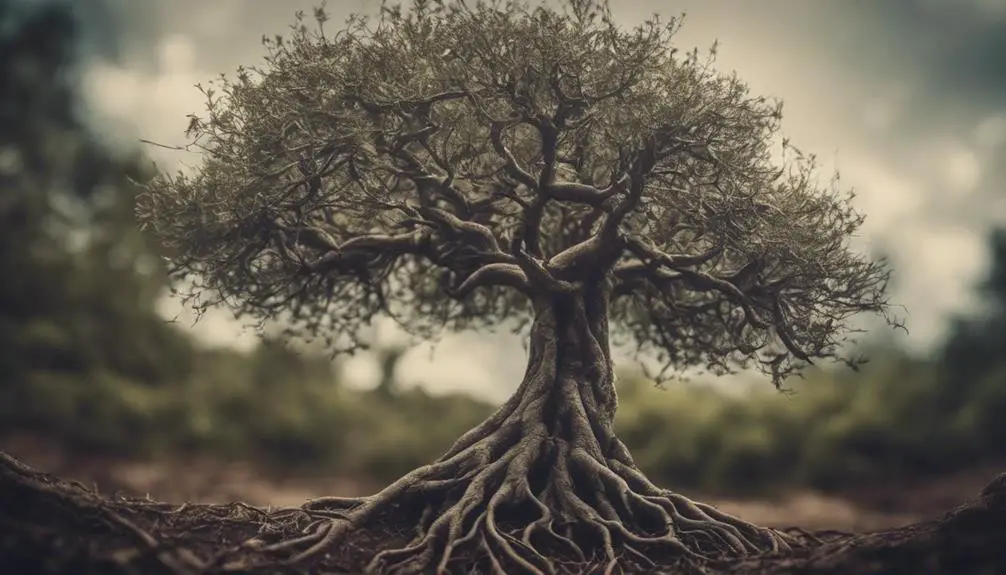
When you first met him, it was like he was a puzzle with all the right pieces falling into place, but now you find yourself staring at a picture that seems incomplete.
The subtle shifts in his demeanor, the unspoken words hanging heavy in the air – you can't help but wonder why. Before jumping to conclusions, consider the layers beneath the surface that might be falling apart.
Stay tuned to uncover the mystery behind why your boyfriend changed and discover what steps you can take to navigate this uncertain terrain together.
Key Takeaways
- Personal growth and external influences can lead to positive transformations in relationships.
- Communication and understanding are crucial for navigating changes and strengthening bonds.
- Evolution through relationship stages can alter behavior and dynamics for growth.
- Facing challenges together fosters resilience and deeper connections in relationships.
Initial Honeymoon Phase
During the initial honeymoon phase of a relationship, you experience intense feelings of love and excitement that often overshadow any flaws and amplify the positive aspects of your partner. This phase creates a sense of euphoria and bliss that can make you feel as though everything is perfect.
It's common to overlook potential issues during this time as you focus on the excitement of being with your partner. However, as you both start to settle into the relationship, the honeymoon phase naturally begins to fade. This change in a relationship is a normal part of growth and allows you to see each other more authentically.
Understanding this evolution can help you navigate the shifts in dynamics that come with moving past the initial stage of intense infatuation.
Relationship Evolution Stages
In the journey of relationship evolution stages, partners navigate through phases of infatuation, coming together, power struggles, commitment, and co-creation as they grow together.
Initially, your boyfriend seemed like the 'nice guy' during the infatuation stage, where emotions ran high. However, as you progressed, emotional issues might've surfaced, triggering power struggles. These conflicts are natural as differences emerge, shaping the relationship dynamics.
The commitment stage is where mutual respect and acceptance of each other's differences play a significant role in moving forward. Finally, in the co-creation stage, collaboration becomes key in overcoming obstacles together.
It's through these stages that relationships mature and deepen, allowing both partners to evolve and grow together.
External Influences and Personal Growth

Amidst the ebb and flow of life's complexities, external influences and personal growth can serve as profound catalysts for change within your boyfriend, shaping the course of your relationship. Positive changes in him might stem from a variety of possible reasons, such as work pressures, family issues, or shifts in social circles. Personal growth and self-discovery could also be driving forces behind his transformation.
It's essential to ponder how emotional struggles, mental health issues, or significant life shifts like moving to a new city could be impacting his behavior. Understanding these external influences and recognizing his journey of personal growth can provide insights into why your boyfriend has changed, fostering a deeper connection as you navigate this evolution together.
Impact on Relationship Dynamics
Understanding the changes in your boyfriend's behavior can greatly influence the dynamics of your relationship, affecting how you communicate and connect emotionally. When your boyfriend suddenly undergoes a shift in his attitude or actions, it can lead to significant changes in relationship dynamics. These changes may impact the level of trust, intimacy, and overall satisfaction within your relationship.
Addressing the impact of these changes on your relationship dynamics is essential for rebuilding trust and strengthening your bond. By openly communicating and aiming for mutual understanding, you can adapt to the shifts in your boyfriend's behavior and work towards fostering a healthier and more fulfilling relationship dynamic. Remember, acknowledging and addressing these changes is vital for moving through this challenging time together.
Navigating Through Changes Together

Managing changes together requires open communication, empathy, and a willingness to understand each other's perspectives. It's essential to recognize that change is a natural part of life, and individuals evolve over time.
Your boyfriend's transformation could be influenced by various factors like personal struggles, communication patterns, evolving relationship dynamics, external stressors, or emotional disconnection. By openly discussing these changes, you can navigate through them together, fostering a deeper understanding of each other's emotions and experiences.
Showing empathy towards your boyfriend's challenges and actively listening to his concerns can strengthen your bond and help you both adapt to the evolving circumstances. Remember, change is inevitable, but facing it together can lead to growth and a stronger relationship.
Frequently Asked Questions
What to Do When Your Boyfriend Has Changed?
When your boyfriend has changed, it's important to openly discuss your concerns and feelings with him. Consider seeking couples counseling for support. Evaluate if external factors are at play and reflect on your needs in the relationship.
When a Person Changes in a Relationship?
When a person changes in a relationship, it's important to understand their motivations. Reflect on your dynamics, communicate openly, and seek support if needed. Embrace growth and navigate challenges together with empathy and understanding.
When Your Partner Changes for the Worst?
When your partner changes for the worst, trust your instincts. Address any disrespectful behavior, emotional manipulation, or lack of empathy. Communication shifts or emotional distancing might indicate underlying issues. Prioritize your well-being and seek clarity.
Why Do Couples Break up When They Move in Together?
When you move in together, differences in habits and expectations can become more apparent. Proximity can magnify disagreements, especially if communication and compromise are lacking. Financial issues, unequal contributions, and unmet expectations can strain the relationship.
Conclusion
As you navigate through the changes in your relationship, remember that growth and evolution are natural parts of any partnership. It's important to communicate openly, set boundaries, and prioritize your mental health for considering challenges together.
One interesting statistic for taking into account is that 60% of couples report positive relationship changes after overcoming difficulties.
By facing these changes head-on and working through them with understanding and empathy, you can strengthen your bond and build a healthier future together.





